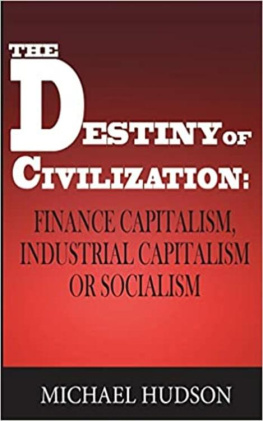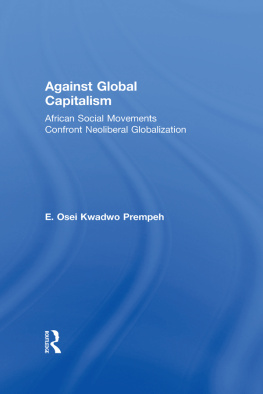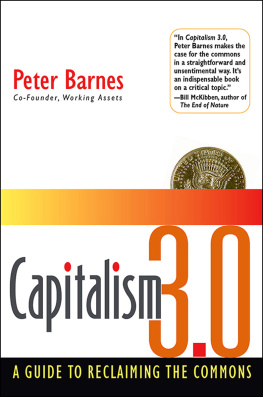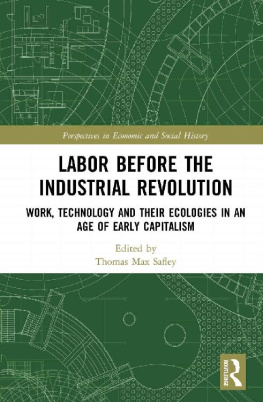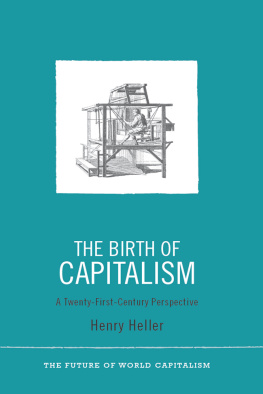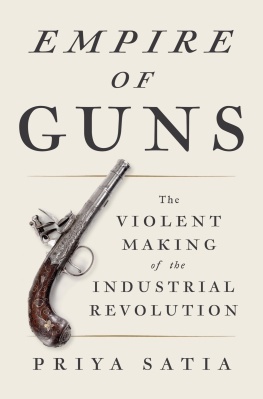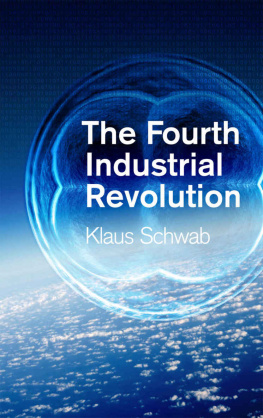Kolozi Peter - Conservatives Against Capitalism: From the Industrial Revolution to Globalization
Here you can read online Kolozi Peter - Conservatives Against Capitalism: From the Industrial Revolution to Globalization full text of the book (entire story) in english for free. Download pdf and epub, get meaning, cover and reviews about this ebook. year: 2017, publisher: Lightning Source Inc. (Tier 3), genre: Politics. Description of the work, (preface) as well as reviews are available. Best literature library LitArk.com created for fans of good reading and offers a wide selection of genres:
Romance novel
Science fiction
Adventure
Detective
Science
History
Home and family
Prose
Art
Politics
Computer
Non-fiction
Religion
Business
Children
Humor
Choose a favorite category and find really read worthwhile books. Enjoy immersion in the world of imagination, feel the emotions of the characters or learn something new for yourself, make an fascinating discovery.

- Book:Conservatives Against Capitalism: From the Industrial Revolution to Globalization
- Author:
- Publisher:Lightning Source Inc. (Tier 3)
- Genre:
- Year:2017
- Rating:4 / 5
- Favourites:Add to favourites
- Your mark:
- 80
- 1
- 2
- 3
- 4
- 5
Conservatives Against Capitalism: From the Industrial Revolution to Globalization: summary, description and annotation
We offer to read an annotation, description, summary or preface (depends on what the author of the book "Conservatives Against Capitalism: From the Industrial Revolution to Globalization" wrote himself). If you haven't found the necessary information about the book — write in the comments, we will try to find it.
Kolozi Peter: author's other books
Who wrote Conservatives Against Capitalism: From the Industrial Revolution to Globalization? Find out the surname, the name of the author of the book and a list of all author's works by series.
Conservatives Against Capitalism: From the Industrial Revolution to Globalization — read online for free the complete book (whole text) full work
Below is the text of the book, divided by pages. System saving the place of the last page read, allows you to conveniently read the book "Conservatives Against Capitalism: From the Industrial Revolution to Globalization" online for free, without having to search again every time where you left off. Put a bookmark, and you can go to the page where you finished reading at any time.
Font size:
Interval:
Bookmark:
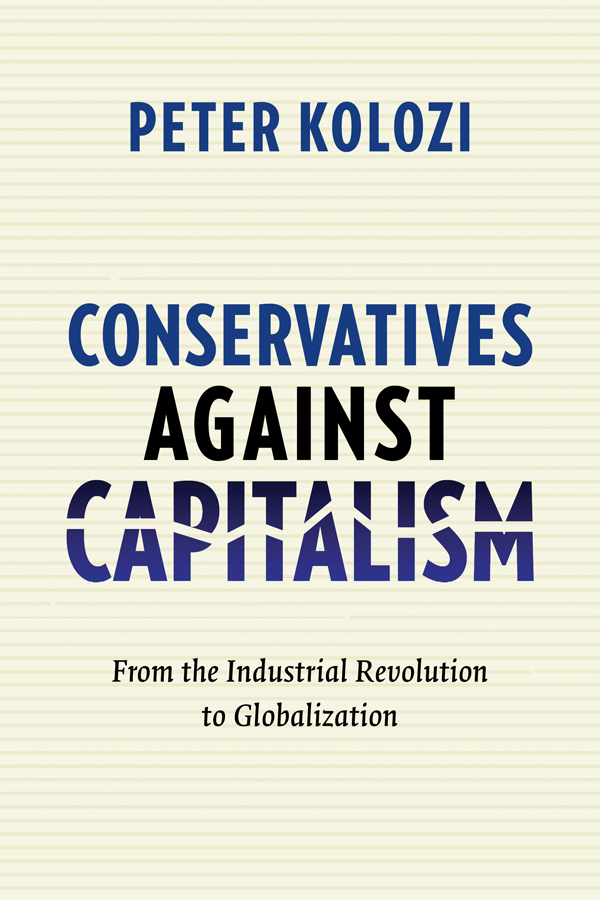
CONSERVATIVES
AGAINST
CAPITALISM
PETER KOLOZI
CONSERVATIVES
AGAINST
CAPITALISM
From the Industrial Revolution to Globalization
COLUMBIA UNIVERSITY PRESS
NEW YORK

Columbia University Press
Publishers Since 1893
New York Chichester, West Sussex
cup.columbia.edu
Copyright 2017 Columbia University Press
All rights reserved
E-ISBN 978-0-231-54461-0
Library of Congress Cataloging-in-Publication Data
Names: Kolozi, Peter, author.
Title: Conservatives against capitalism : from the Industrial Revolution to globalization / Peter Kolozi.
Description: New York : Columbia University Press, 2017. | Includes bibliographical references and index.
Identifiers: LCCN 2016058575 (print) | LCCN 2017022706 (e-book) | ISBN 9780231166522 (cloth : acid-free paper) | ISBN 9780231544610 (e-book)
Subjects: LCSH: CapitalismPolitical aspectsUnited StatesHistory. | CapitalismSocial aspectsUnited StatesHistory. | ConservatismUnited StatesHistory. | United StatesPolitics and governmentPhilosophy. | United StatesEconomic policyPhilosophy.
Classification: LCC HC110.C3 (ebook) | LCC HC110.C3 K76 2017 (print) | DDC 330.12/2dc23
LC record available at https://lccn.loc.gov/2016058575
A Columbia University Press E-book.
CUP would be pleased to hear about your reading experience with this e-book at .
Cover design: Lisa Hamm
For my parents
CONTENTS
I am indebted to many people, for without their support and encouragement, this manuscript would not have been possible. First, I would like to thank my editor, Philip Leventhal, and his associates at Columbia University Press. Mr. Leventhals comments, suggestions, and edits have been vital to improving this manuscript. I also wish to thank the Ph.D. program in political science at the Graduate Center of the City University of New York (CUNY) for giving me the opportunity to pursue my graduate studies.
I especially want to thank Professors Corey Robin and Professor Michael J. Thompson for reading and rereading my work, offering invaluable comments and suggestions, and helping me formulate and engage with my ideas more thoroughly and creatively. I also am grateful to Professors George Gregoriou and Stephen R. Shalom at William Paterson University who inspired and encouraged me to pursue graduate studies in political science.
I wish to thank the Professional Staff Congress (PSC) for securing reassigned time in support of junior faculty doing research at CUNY. I am deeply grateful to my colleagues at CUNYs Bronx Community College (BCC), particularly Ms. Amariliz Gomez-Sanchez and Professors Jawied Nawabi and James E. Freeman, who have been especially supportive during my years of working with them. I am especially grateful to Professor Freeman, my professional mentor and friend, for without his motivation and encouragement I could not have completed this book. I also wish to thank my students at BCC for inspiring me with their energy, intellect, and perseverance.
Finally, I am indebted to my friends and family, in particular Edward and Patricia Kotarski, John Baldino, Maria Pagoulatos, David Gentilella, and Isa Vasquez; my brother, Ladislav, and his family, and, most of all, my mom and dad. I greatly appreciate their patience, understanding, support, and encouragement throughout the ups and downs of graduate studies and in the long journey leading to the completion of this book.
A fter the economic crisis that began in 2007 and the jobless recovery that followed, the political debate about capitalism seems to be making a comeback, with economic inequality at the center. Instead, many of their complaints of contemporary America center on Big Government, the permissive liberal culture, and threats posed by the other, whether they are immigrants from Latin America or Muslims, and not on a critical analysis of the economic system. This exclusion in contemporary conservative discourse suggests a significant evolution in the conservative intellectual tradition, which for much of its history has had a critical orientation to capitalism, particularly laissez-faire capitalism, the version that is rhetorically dominant among conservatives today.
Although it is commonly assumed that conservatives are consistent supporters of laissez-faire capitalism, and many of them are, this assumption does not reflect the American conservative tradition as a whole. To be sure, the critique of capitalism is no longer as central to conservatives thinking about the economy as it once was. In fact, the conservative critique of capitalism has evolved from challenges to the economic system as a whole to debates over free trade and protectionism. Both conservatives in general and the tradition in the conservative intellectual movement that has been critical of capitalism have now been reconciled to capitalism as an economic system. Whatever conservative critique remains in the current discourse is now focused on the cultural critique of capitalism, weaving the disparate thinkers that I consider in this book into a tapestry forming a new tradition in American conservative thought.
Many thinkers have embraced free-market capitalism, and not all of them have been self-described conservatives. Some, such as Friedrich Hayek, described themselves as classical liberals. Conservatives Against Capitalism , however, is not about them or conservative economic thinkers. Instead, it is about self-described conservative political thinkers and, in some cases, political practitioners, who have wrestled with and tried to reconcile the tension between capitalism and a conservative social order.
In fact, to label conservatives as enthusiastic advocates of laissez-faire capitalism is to overlook a long tradition that has been both critical of it and has offered alternatives. Within this critical tradition, conservative thinkers have challenged capitalism on a number of fronts, including its deleterious social, cultural, and political impacts. The extent of their influence has varied. For instance, James Henry Hammond, John C. Calhoun, Theodore Roosevelt, and the more recent neoconservatives were not only political thinkers but also elected politicians. Men such as Brooks Adams and Irving and William Kristol were close to the levers of power where their ideas influenced public policy. Others, such as George Fitzhugh and the Southern Agrarians, had a minimal influence on public policy but are academically significant as being among the most iconoclastic and sharpest critics of capitalism in the conservative tradition. With the exception of the defenders of slavery, who had an existing alternative at hand, conservative critics of capitalism have been left with no choice but to accept some version of capitalism. Moreover, their ideas about conservatism and their ambivalence to capitalism are important to contemporary debates about the economic organization of a good society, to understanding the relationship between an economic system and conservative values and institutions, and to conservative intellectual and public policy debates about capitalism and the welfare state.
Writing about the variety of conservative thinking, Patrick Allitt suggested that for some conservatives, conservatism was, chiefly, the defense of free-market capitalism, even though, paradoxically, capitalism has probably done more to change the world in the past two centuries than anything else. For other conservatives, capitalism has been a motor of change, but one that has necessitated offering a theoretical opposition to what it changed.
Font size:
Interval:
Bookmark:
Similar books «Conservatives Against Capitalism: From the Industrial Revolution to Globalization»
Look at similar books to Conservatives Against Capitalism: From the Industrial Revolution to Globalization. We have selected literature similar in name and meaning in the hope of providing readers with more options to find new, interesting, not yet read works.
Discussion, reviews of the book Conservatives Against Capitalism: From the Industrial Revolution to Globalization and just readers' own opinions. Leave your comments, write what you think about the work, its meaning or the main characters. Specify what exactly you liked and what you didn't like, and why you think so.


